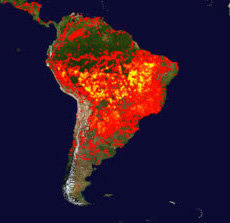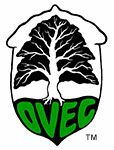- Like
- Digg
- Del
- Tumblr
- VKontakte
- Buffer
- Love This
- Odnoklassniki
- Meneame
- Blogger
- Amazon
- Yahoo Mail
- Gmail
- AOL
- Newsvine
- HackerNews
- Evernote
- MySpace
- Mail.ru
- Viadeo
- Line
- Comments
- Yummly
- SMS
- Viber
- Telegram
- Subscribe
- Skype
- Facebook Messenger
- Kakao
- LiveJournal
- Yammer
- Edgar
- Fintel
- Mix
- Instapaper
- Copy Link
At the 2019 WV Science Teachers Association Conference, retired school teacher Randi Pokladnik, PhD, presented three curricula for high school teachers to use in their classrooms:
- Climate Change: The Science and Solutions;
- The Benefits of Renewable Energy; and
- Fracking, Cracker Plants, Plastics, and You.
What are the basic scientific facts that point to this conclusion? How do temperature proxies in nature back up scientific data and observations? How are some major changes on the planet, such as the polar ice melting and the Amazon forests fires, causing the effects of climate change to accelerate? What are some of the problems that this crisis will bring to communities across the planet and in our own backyards? What can we do to mitigate or adapt to the effects of climate change?
These are some of the questions examined in Climate Change: The Science and Solutions. A pdf of this lesson plan is below, along with supporting materials, which you may download to use in your classroom, no matter where you are. Find The Benefits of Renewable Energy lesson plan here. Find Fracking, Cracker Plants, Plastics, and You at this link. Also see: Fracking boom tied to methane spike in Earth’s atmosphere.
If you would like the PowerPoint version of Climate Change: The Science and Solutions shared with you via Google Drive, please e-mail info@ohvec.org.
FAIR USE NOTICE: This mayor may not contain copyrighted material the use of which has not always been specifically authorized by the copyright owner. We are making such material available in our efforts to advance understanding of criminal justice, political, human rights, economic, democracy, scientific, and social justice issues, etc. We believe this constitutes a fair use of any such copyrighted material as provided for in section 107 of the US Copyright Law. In accordance with Title 17 U.S.C. Section 107, the material on this site is distributed without profit to those who have expressed a prior interest in receiving the included information for research and educational purposes. For more info: http://www.law.cornell.edu/uscode/17/107.shtml.
One of the supporting resources is this from the IPCC – the International Panel on Climate Change:
And here are multiple, supporting peer-reviewed studies:
REOURCES from EDX Climate Denial 101
https://courses.edx.org/courses/course-v1:UQx+Denial101x+1T2019/course/
Introduction:
Consensus of Evidence
Science is not a democracy quote
Reisman, J. P. (2011). Exposing the climate hoax: It’s ALL about the economy. New Jersey: Lyra Books.
Burning fossil fuels produces CO2
Revelle, R., & Suess, H. E. (1957). Carbon dioxide exchange between atmosphere and ocean and the question of an increase of atmospheric CO2 during the past decades. Tellus, 9(1), 18-27. Link to PDF
Post, W. M., Peng, T. H., Emanuel, W. R., King, A. W., Dale, V. H., & DeAngelis, D. L. (1990). The global carbon cycle. American Scientist, 78(4), 310-326. Link to PDF
Less heat escaping to space
Loeb, N. G., Wielicki, B. A., Doelling, D. R., Smith, G. L., Keyes, D. F., Kato, S., … & Wong, T. (2009). Toward optimal closure of the Earth’s top-of-atmosphere radiation budget. Journal of Climate, 22(3), 748-766. Link to PDF
More IR at the surface
Feldman, D. R., Collins, W. D., Gero, P. J., Torn, M. S., Mlawer, E. J., & Shippert, T. R. (2015). Observational determination of surface radiative forcing by CO2 from 2000 to 2010. Nature, 519(7543), 339-343. Link to abstract
Cooling in the upper atmosphere
Santer, B. D., Painter, J. F., Bonfils, C., Mears, C. A., Solomon, S., Wigley, T. M., … & Wentz, F. J. (2013). Human and natural influences on the changing thermal structure of the atmosphere. Proceedings of the National Academy of Sciences, 110(43), 17235-17240. Link to paper
Changing structure of the atmosphere
Laštovička, J., Akmaev, R. A., Beig, G., Bremer, J., & Emmert, J. T. (2006). Global change in the upper atmosphere. Science, 314(5803), 1253-1254. Link to Word-doc
The sky is falling – Gavin Schmidt “quip”
Schmidt, G. (2006), The sky IS falling. 26 November 2006 RealClimate.org http://www.realclimate.org/index.php/archives/2006/11/the-sky-is-falling/.
Consensus of scientists
Doran, P. T., & Zimmerman, M. K. (2009). Examining the scientific consensus on climate change. Eos, Transactions American Geophysical Union, 90(3), 22-23. Link to PDF
Anderegg, W. R., Prall, J. W., Harold, J., & Schneider, S. H. (2010). Expert credibility in climate change. Proceedings of the National Academy of Sciences, 107(27), 12107-12109. Link to paper
Diethelm, P., & McKee, M. (2009). Denialism: what is it and how should scientists respond?. The European Journal of Public Health, 19(1), 2-4. Link to PDF
Kahan, D. M., Jenkins‐Smith, H., & Braman, D. (2011). Cultural cognition of scientific consensus. Journal of Risk Research, 14(2), 147-174. Link to PDF
Plous, S. (1991). Biases in the assimilation of technological breakdowns – do accidents make us safer. Journal of Applied Social Psychology, 21(13), 1058-1082. Link to abstract
Talisse, R., & Aikin, S. F. (2006). Two forms of the straw man. Argumentation, 20(3), 345-352. Link to PDF
Smith, N., & Leiserowitz, A. (2012). The rise of global warming skepticism: Exploring affective image associations in the United States over time. Risk Analysis, 32(6), 1021-1032. Link to PDF
CONSENSUS OF Papers
Oreskes, N. (2004). The scientific consensus on climate change. Science, 306(5702), 1686-1686. Link to paper
Cook, J., Nuccitelli, D., Green, S. A., Richardson, M., Winkler, B., Painting, R., … & Skuce, A. (2013). Quantifying the consensus on anthropogenic global warming in the scientific literature. Environmental Research Letters, 8(2), 024024. Link to paper also see www.skepticalscience.com/tcp.php
Shwed, U., & Bearman, P. S. (2010). The temporal structure of scientific consensus formation. American Sociological Review, 75(6), 817-840. Link to paper
Knowledge Based Consensus
Miller, B. (2013) When is Consensus Knowledge Based? Distinguishing Shared Knowledge from Mere Agreement. Synthese, 190(7): 1293-1316. Link to PDF
Oreskes, N. (1988). The rejection of continental drift. Historical Studies in the Physical and Biological Sciences, 311-348. Link to paper
Oreskes, N., & Wegener, A. (1999). The rejection of continental drift: Theory and method in American earth science. New York: Oxford University Press. http://media.hhmi.org/hl/12Lect2.html
Oreskes, N. (2012, November). Building scientific knowledge: The story of plate tectonics. Howard Hughes Medical Institute Holiday Lectures on Science – Changing Planet: Past, Present, Future. Lecture conducted from the Howard Hughes Medical Institute, Chevy Chase, MD.
PSYCHOLOGY of Denial
Ideological Bias
Kahan, D. M., Braman, D., Slovic, P., Gastil, J., & Cohen, G. L. (2007). The second national risk and culture study: Making sense of-and making progress in-the American culture war of fact. GWU Legal Studies Research Paper, (370), 08-26. Link to PDF
Campbell, T. H., & Kay, A. C. (2014). Solution aversion: On the relation between ideology and motivated disbelief. Journal of Personality and Social Psychology, 107(5), 809. Link to PDF
Leiserowitz et al. (2013). Climate change in the American mind: Americans’ global warming beliefs. Yale Project on Climate Change Communication and the George Mason University Center for Climate Change Communication. http://environment.yale.edu/climate-communication/files/Climate-Beliefs-April-2013.pdf . Accessed online 05 April 2015
What we know: The reality, risks, and response to climate change. American Association for the Advancement of Science (AAAS). http://whatweknow.aaas.org/wp-content/uploads/2014/07/whatweknow_website.pdf . Accessed online 05 April 2015
five characteristics of science denial
Diethelm, P., & McKee, M. (2009). Denialism: What is it and how should scientists respond?. The European Journal of Public Health, 19(1), 2-4. Link to PDF
Kahan, D. M., Jenkins‐Smith, H., & Braman, D. (2011). Cultural cognition of scientific consensus. Journal of Risk Research, 14(2), 147-174. Link to PDF
Plous, S. (1991). Biases in the assimilation of technological breakdowns – do accidents make us safer. Journal of Applied Social Psychology, 21(13), 1058-1082. Link to abstract
Talisse, R., & Aikin, S. F. (2006). Two forms of the straw man. Argumentation, 20(3), 345-352. Link to PDF
Smith, N., & Leiserowitz, A. (2012). The rise of global warming skepticism: Exploring affective image associations in the United States over time. Risk Analysis, 32(6), 1021-1032. Link to PDF
Dragons of inaction
Gifford, R. (2011). The dragons of inaction: Psychological barriers that limit climate change mitigation and adaptation. American Psychologist, 66(4), 290. Link to abstract
Gifford, R., Scannell, L., Kormos, C., Smolova, L., Biel, A., Boncu, S., … & Uzzell, D. (2009). Temporal pessimism and spatial optimism in environmental assessments: An 18-nation study. Journal of Environmental Psychology, 29(1), 1-12. Link to PDF
Pahl, S., Harris, P. R., Todd, H. A., & Rutter, D. R. (2005). Comparative optimism for environmental risks. Journal of Environmental Psychology, 25(1), 1-11. Link to abstract
Ajzen, I. (2002). Perceived behavioral control, self-efficacy, locus of control, and the theory of planned behavior. Journal of Applied Social Psychology 32(4): 665-683.
Lorenzoni, I., Nicholson-Cole, S., & Whitmarsh, L. (2007). Barriers perceived to engaging with climate change among the UK public and their policy implications. Global Environmental Change, 17(3), 445-459. Link to abstract
Heath, Y., & Gifford, R. (2002). Extending the theory of planned behavior: Predicting the use of public transportation. Journal of Applied Social Psychology, 32(10), 2154-2189. Link to PDF
Ding, D., Maibach, E. W., Zhao, X., Roser-Renouf, C., & Leiserowitz, A. (2011). Support for climate policy and societal action are linked to perceptions about scientific agreement. Nature Climate Change, 1(9), 462-466. Link to PDF
McCright, A. M., Dunlap, R. E., & Xiao, C. (2013). Perceived scientific agreement and support for government action on climate change in the USA. Climatic Change, 119(2), 511-518. Link to abstract
Lewandowsky, S., Gignac, G. E., & Vaughan, S. (2013). The pivotal role of perceived scientific consensus in acceptance of science. Nature Climate Change, 3(4), 399-404. Link to abstract (Link to PDF)
van der Linden, S. L., Leiserowitz, A. A., Feinberg, G. D., & Maibach, E. W. (2014). How to communicate the scientific consensus on climate change: Plain facts, pie charts or metaphors?. Climatic Change, 126(1-2), 255-262. Link to PDF
Heath, Y., & Gifford, R. (2006). Free-market ideology and environmental degradation the case of belief in global climate change. Environment and Behavior, 38(1), 48-71. Link to abstract
BIG OIL Knew About Climate Change
https://insideclimatenews.org/content/Exxon-The-Road-Not-Taken
https://www.scientificamerican.com/article/exxon-knew-about-climate-change-almost-40-years-ago/
https://www.smokeandfumes.org/documents/document16
https://blogs.ei.columbia.edu/files/2009/10/broeckerglobalwarming75.pdf
CLIMATE CHANGE AND HEALTH
Lancet Report
Temperature Proxies
https://serc.carleton.edu/microbelife/topics/proxies/paleoclimate.html
Excellent List of Peer Reviewed articles on MANY Topics related to climate change!!!******
https://serc.carleton.edu/climatechange/summary.html
EFFECTS of Climate Change
https://www.worldwildlife.org/threats/effects-of-climate-change
https://www.conserve-energy-future.com/climatechangeeffects.php
Ocean Acidification:
https://www.nrdc.org/stories/what-you-need-know-about-ocean-acidification
CHART ON OCEAN ACIDIFICATION
http://media-2.web.britannica.com/eb-media/82/152182-004-03BF73AC.jpg
Birds and caterpillars
WHY 1.5 degrees?
https://www.sciencenews.org/article/global-warming-limit-degrees-ipcc-climate-change
https://www.carbonbrief.org/scientists-compare-climate-change-impacts-at-1-5c-and-2c









